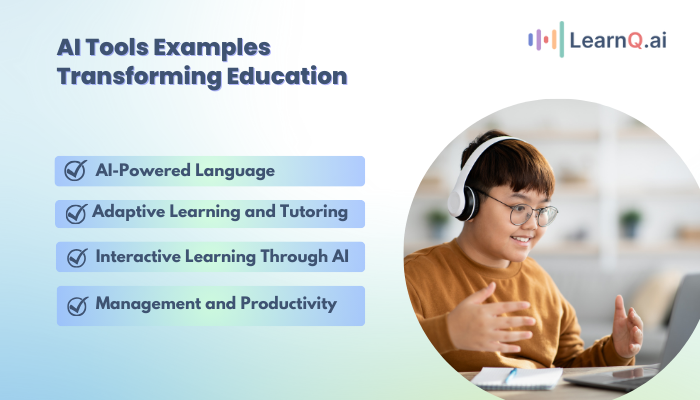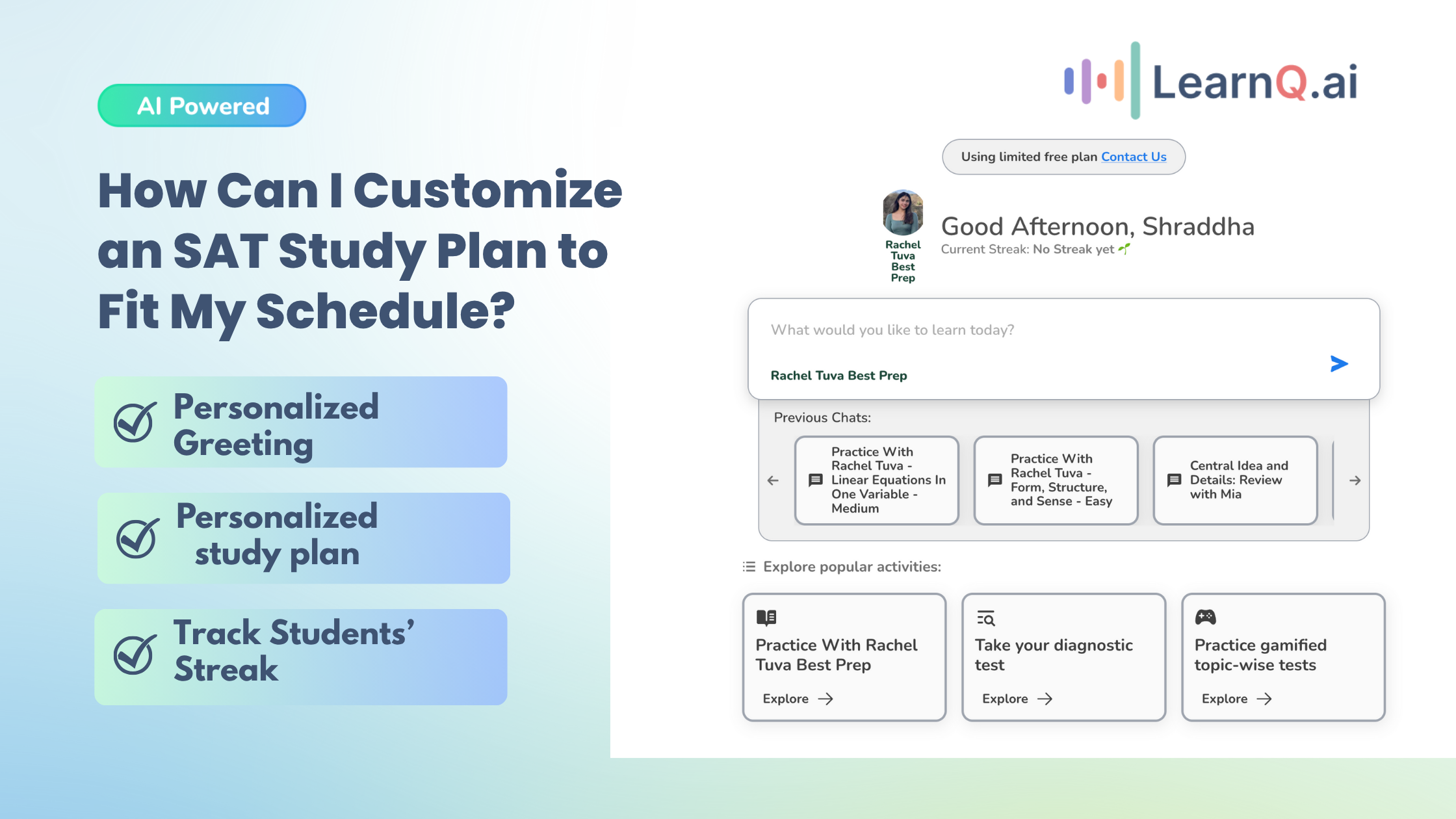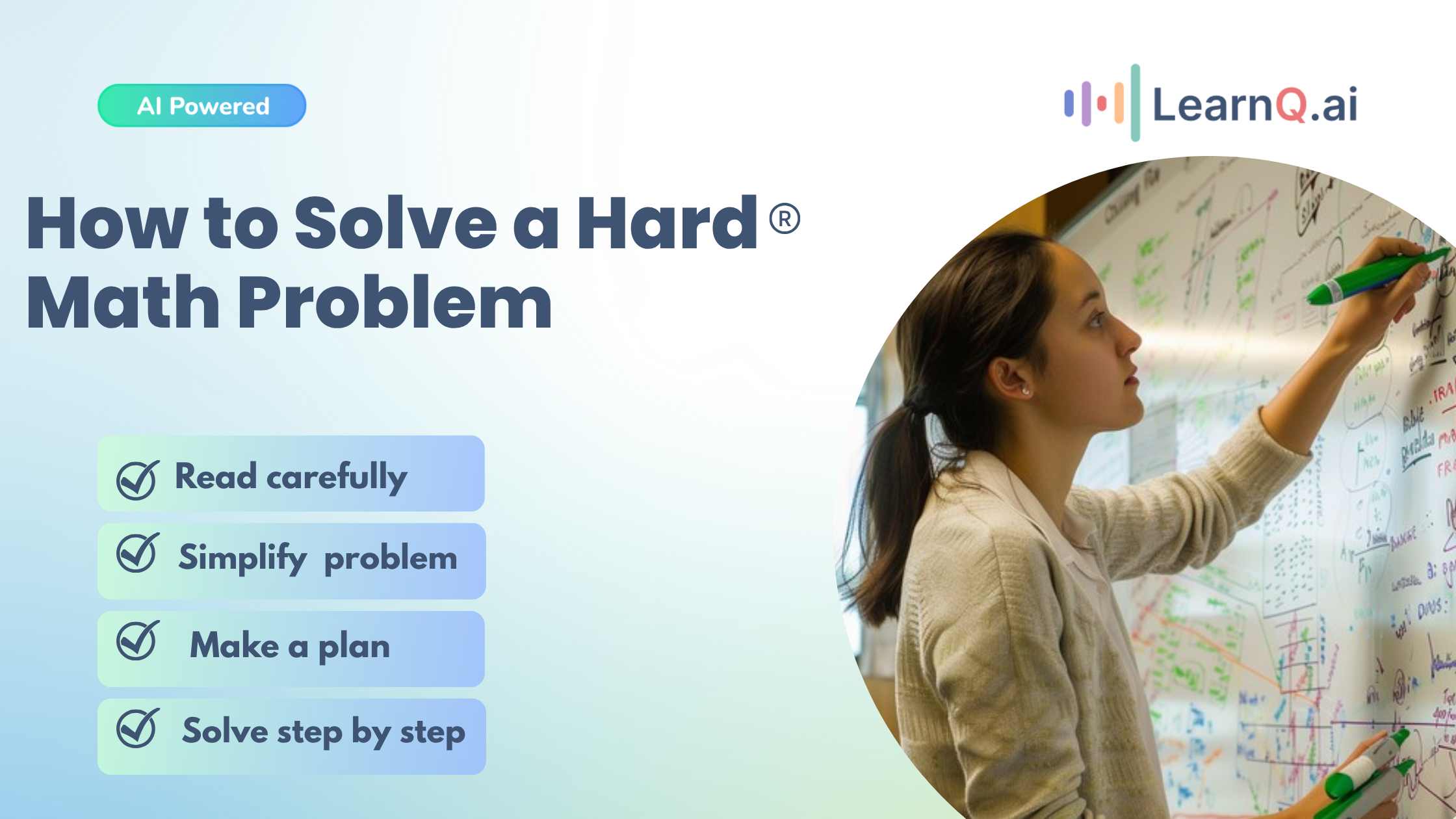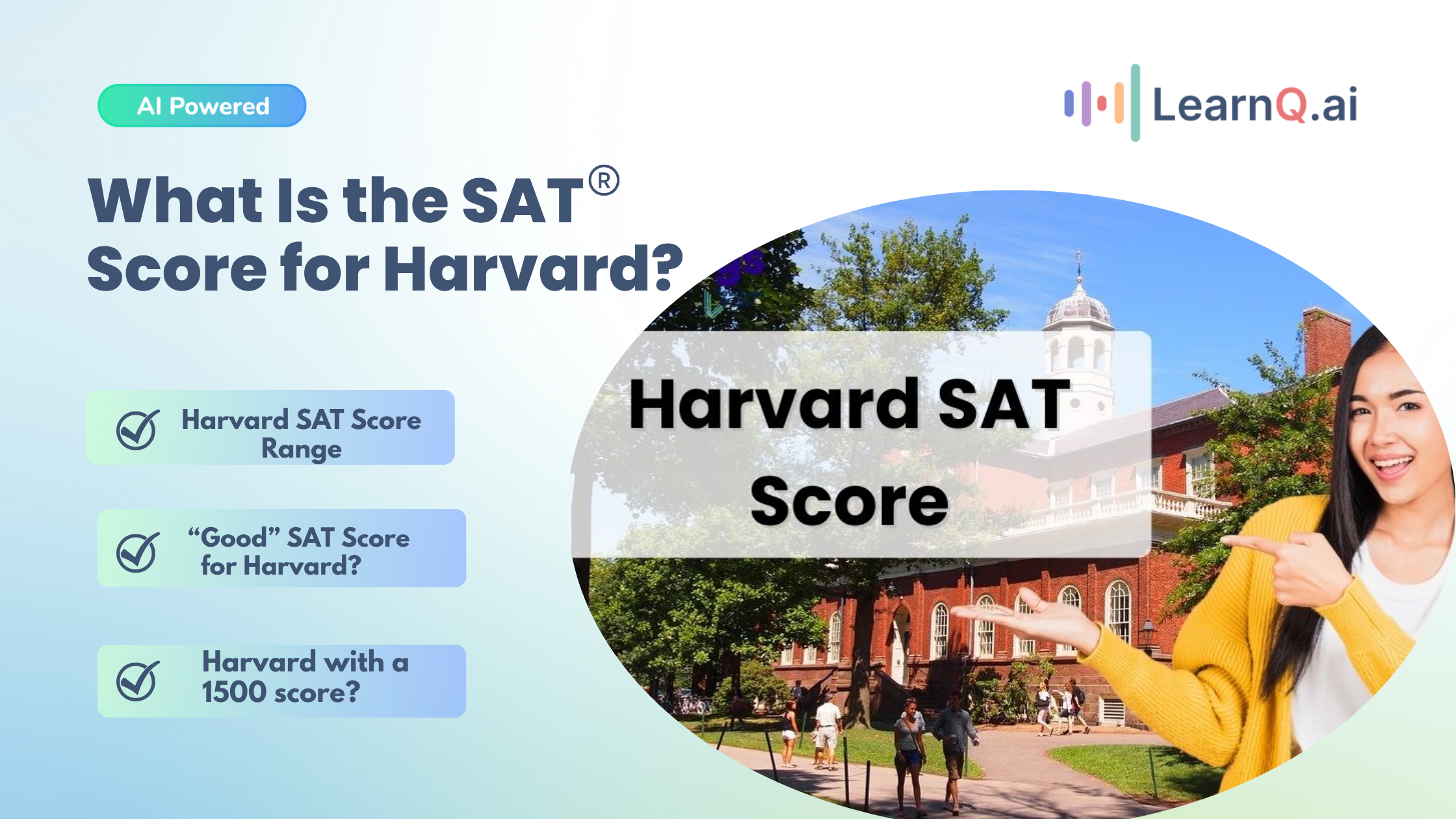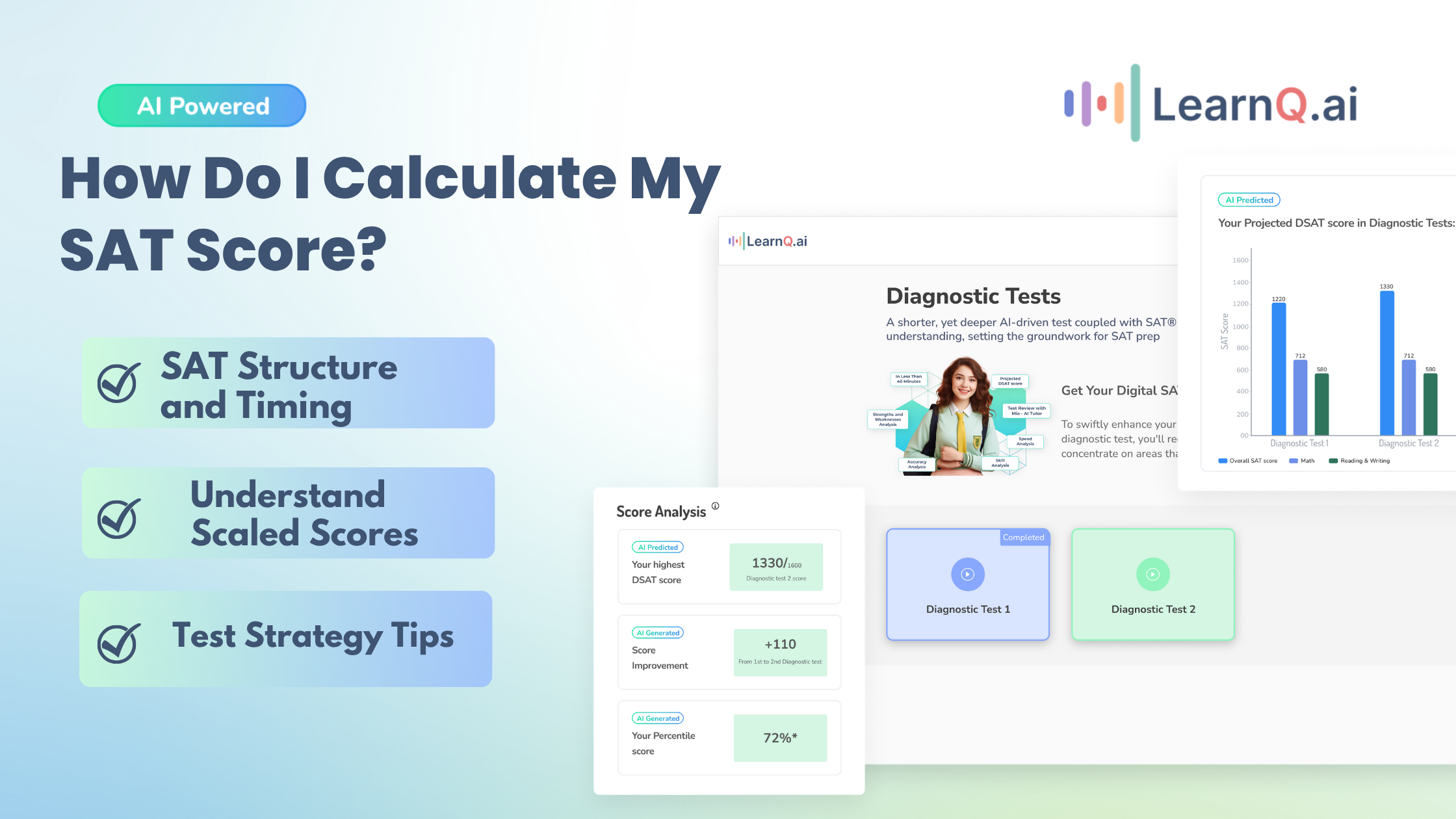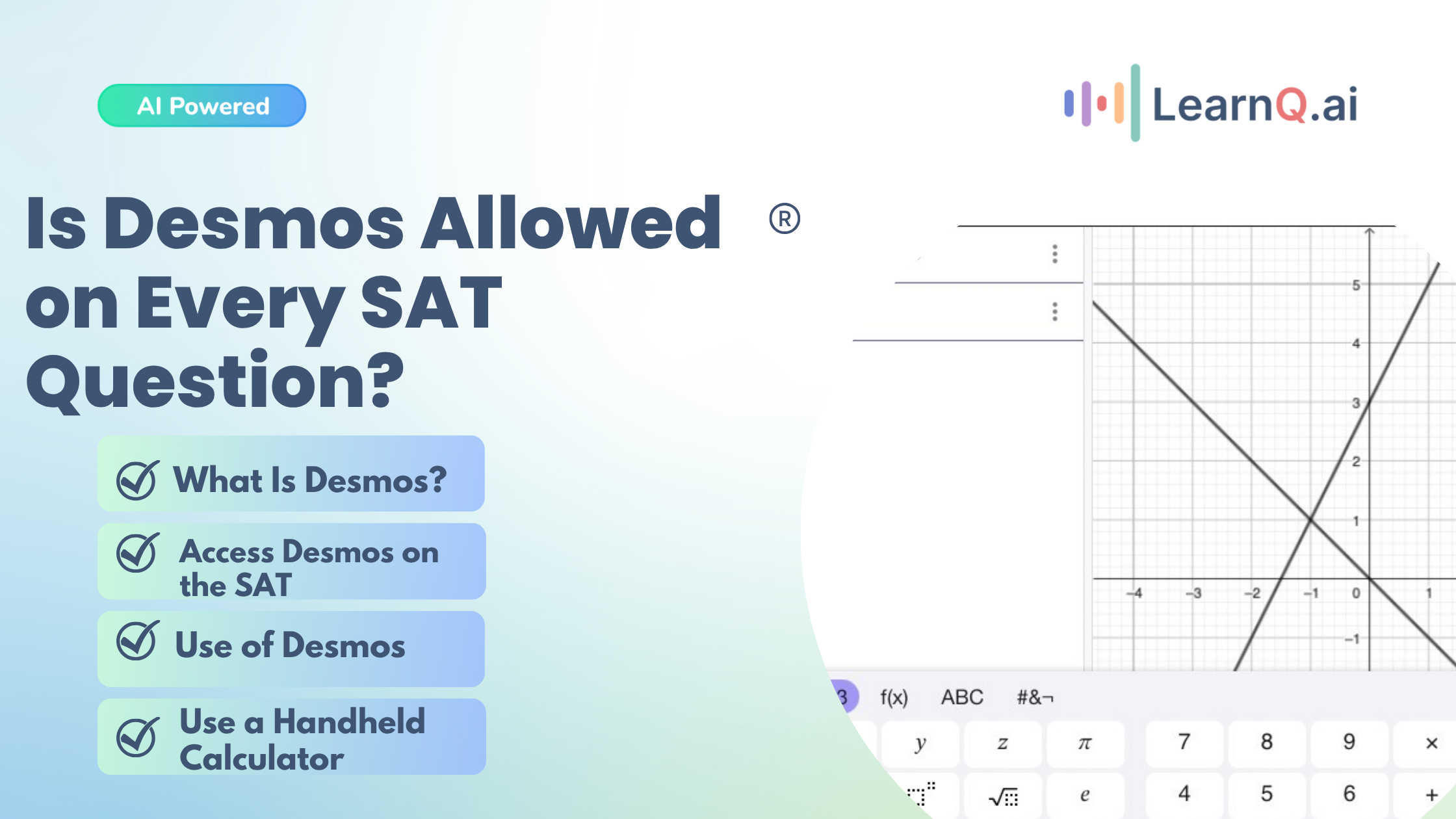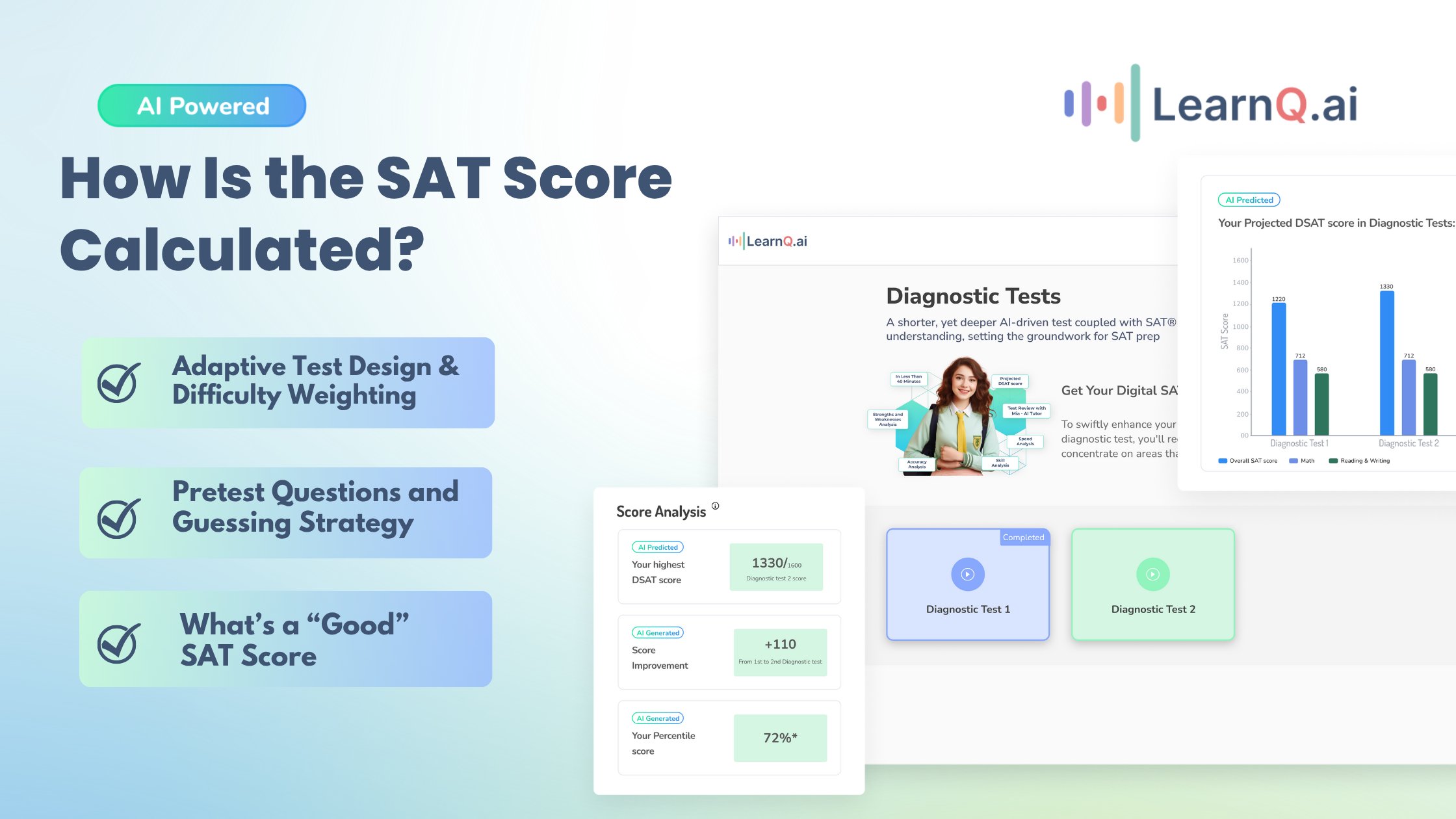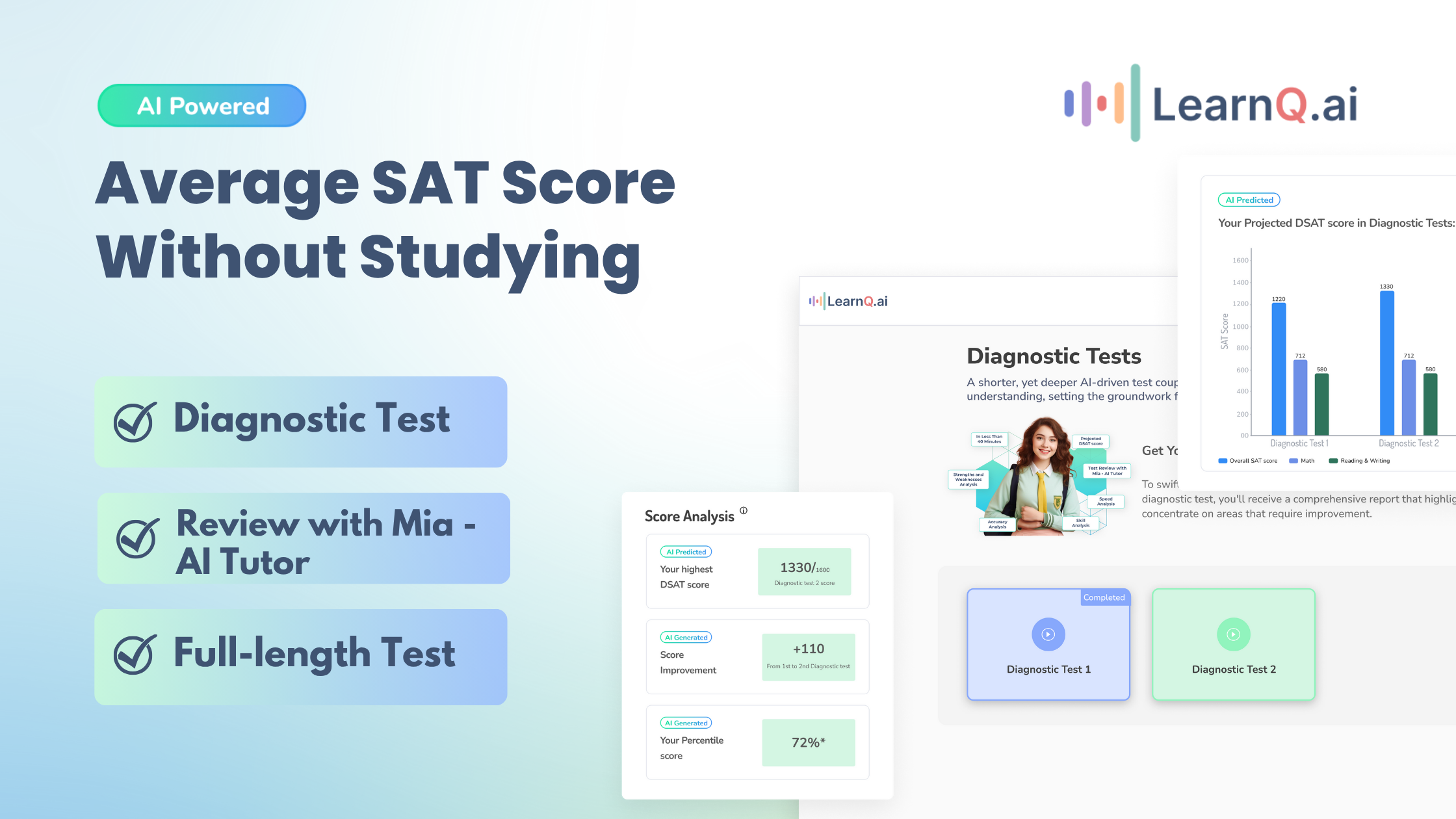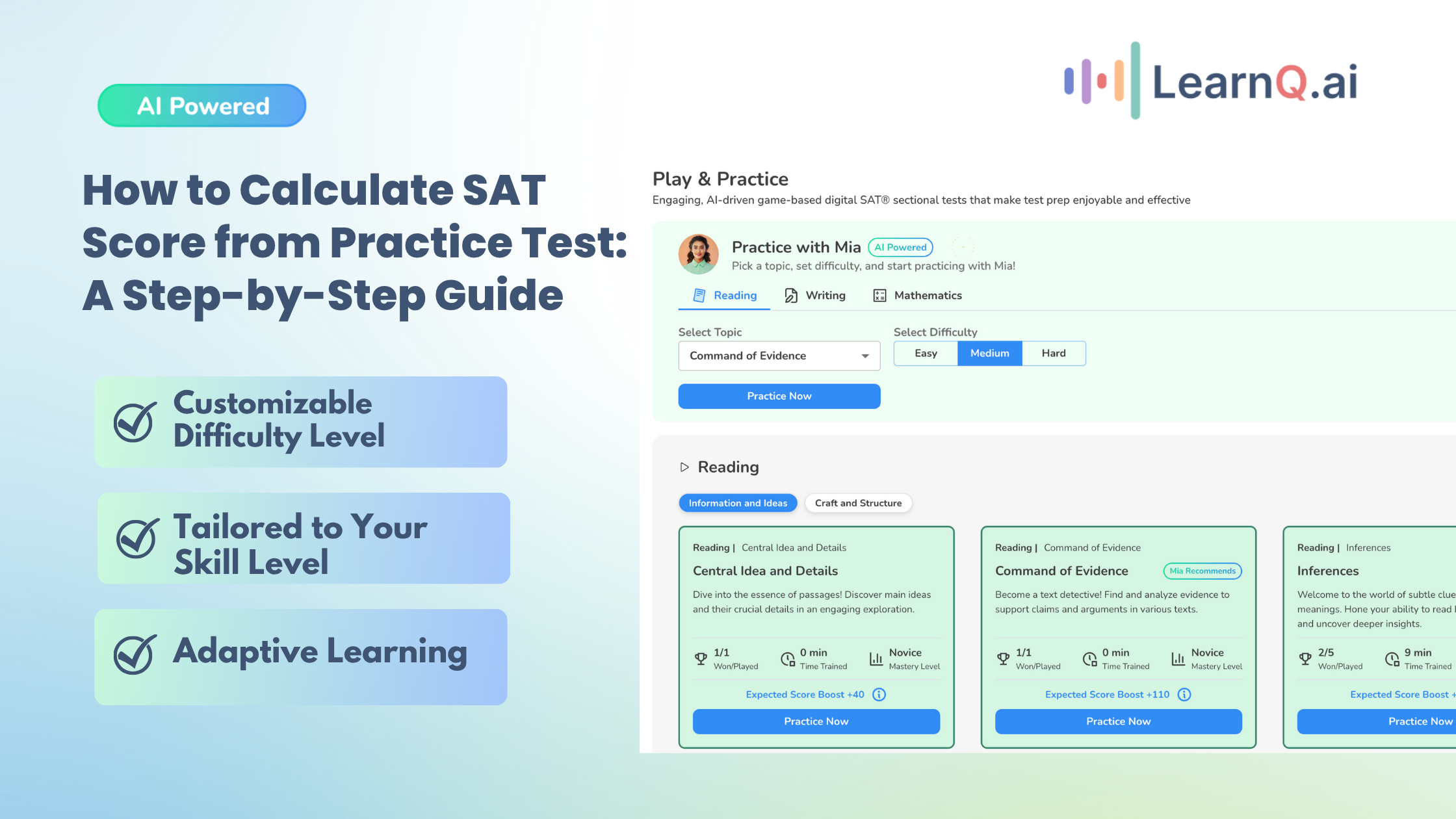Learning has always been—and will continue to be—a fundamental aspect of humanity. With the advent of artificial intelligence (AI) and machine learning technologies, education has become more accessible and efficient than ever before.
AI enhances the classroom experience for both students and teachers through personalized learning and 24/7 tutoring access. Once a concept of science fiction, AI is now increasingly integrated into classrooms worldwide. Generative AI, known for its ability to answer questions and create various text formats, is particularly inspiring educators.
AI is revolutionizing education, and its impact is only set to grow. Here’s a gist of how AI is transforming the learning landscape:
Tailored Learning Paths: AI can analyze a student’s strengths, weaknesses, and learning styles to create a personalized curriculum. This ensures students focus on areas needing improvement and progress at their own pace.
Intelligent Tutors: Conversational AI tutors like Mia by LearnQ.ai can provide 24/7 support, answer questions, and explain concepts in a way that resonates with the student’s learning style.
Automated Grading and Feedback: AI can handle repetitive tasks like grading, freeing up teachers’ time to focus on more individualized instruction and student interaction.
Throughout this blog, we will witness how AI tools are reshaping the SAT landscape, bringing about significant changes that benefit both students and educators.
Significance of AI in Revolutionizing the Educational Landscape
In today’s rapidly evolving world, the integration of AI into educational systems is no longer a luxury but a necessity. AI education platforms are poised to redefine how we learn, teach, and engage with educational content.
Let’s try to understand them:
- Personalized Learning Paths
AI can tailor learning experiences to individual student needs. Think of a system that adjusts difficulty levels, identifies knowledge gaps, and suggests targeted resources, all to ensure a deeper understanding of concepts.
- Enhanced Engagement and Motivation
AI-powered tools can make learning more interactive and engaging. Think of simulations, games, and personalized feedback that keep students motivated and excited to learn.
- Empowering Educators
AI can analyze student performance data to identify at-risk students or areas where the entire class might be struggling. This allows teachers to adjust their teaching approach and provide targeted support.
Also Read: How To Study For The Sat In A Month?
LearnQ.ai is Powered by VEGA AI—Is your Institute Next?
Give students a Duolingo-style test-prep platform with Shopify-level customization for tutors and institutes.
How AI Tools Enhance Personalized Learning, Efficiency, and Accessibility
Gone are the days of one-size-fits-all educational approaches. AI tools tailor learning experiences to individual needs, ensuring students receive personalized attention and support through AI Education Platforms.
Here’s how:
- Adaptive learning platforms identify knowledge gaps and curate customized content.
- AI tutoring systems provide real-time feedback and support.
- Writing assistants like Grammarly enhance writing skills with real-time suggestions.
Moreover, AI-powered language learning tools and writing assistants are breaking down barriers, making education more accessible and inclusive for learners worldwide.
AI-Powered Language Learning Techniques
The SAT’s transition to a computer-based format offers new opportunities for test preparations. Artificial intelligence (AI) is emerging as a powerful tool in this area, particularly for enhancing language skills tested on the Digital SAT.
Here are the AI-powered tools that can help you with the Digital SAT:
- Personalized explanations & tricks: Forget generic learning methods. On LearnQ.ai, your AI tutor – Mia, tailors her approach to fit your learning style, making concepts click.
- Multilingual mastermind: Need help in English, Spanish, French, or something else? Mia speaks your language and breaks down barriers.
- Real-time insights: No more guessing! Get immediate feedback on your performance and understand what areas to conquer next.
- Future score forecast: Mia analyzes your strengths and weaknesses, even predicting your potential SAT score. Focus your efforts where they’ll have the biggest impact.
- Flexible scheduling: No need to fit prep into an already overflowing schedule. Mia integrates seamlessly with your day, respecting your commitments.
Engagement and Interactive Learning Through AI
The educational landscape is undergoing a revolution with the rise of AI-powered learning platforms. These innovative solutions, exemplified by the new Digital SAT, offer immersive and personalized experiences that not only captivate learners but also foster effective knowledge acquisition.
Personalized Learning Path:
These Adaptive learning platforms utilize sophisticated AI algorithms, similar to those used in the digital SAT itself.
By analyzing your performance on practice questions and diagnostic tests, platforms such as Learnq.ai can tailor a study plan that focuses on your strengths and weaknesses ensuring you spend more time sharpening the skills that need the most improvement.
Practice Questions that Adapt:
Building on the digital SAT’s concept of adaptive testing, these platforms offer practice questions that adjust in difficulty based on your performance.
If you consistently answer questions correctly on a particular topic, the platform will introduce more challenging questions to keep you engaged and push your understanding to the next level.
Strategies and Considerations for Success
While adaptive learning platforms offer powerful tools, it’s important to approach them strategically to maximize their effectiveness:
- Use feedback from the adaptive platform to adjust your study approach: if you find the questions too easy, request higher difficulty; if you are consistently challenged, you are on the right track.
- Practice tests on adaptive platforms can help you manage time effectively. Use them to ensure you can answer all questions within the given time.
- Utilize platform resources for reading strategies, math problem-solving, and stress management. These will help you develop a well-rounded approach and excel in all SAT sections.
Consistent practice and a strategic approach are crucial for SAT success. Using adaptive learning tools effectively will guide you toward achieving your target score on the digital SAT.
AI for Maths and Reading and Writing
The Digital SAT represents a huge shift in the world of standardized testing, and at the heart of this transformation lies the integration of cutting-edge artificial intelligence (AI) technologies. As you prepare to tackle the Math, Reading, and Writing portions of this next-generation exam, you’ll discover that AI is no longer a futuristic concept – it’s a powerful ally that can personalize and enhance your learning experience.
Mathematics
The Digital SAT’s Math section is more than just a test of formulas and calculations—it’s a comprehensive assessment of your mathematical reasoning and problem-solving skills. In this new digital format, the Math section adapts to your performance in real time, presenting questions that align with your current proficiency level.
Identify Areas of Strength and Weaknesses: AI can accurately identify which areas, such as algebra, geometry, and data analysis, a student excels in or struggles with. By analyzing performance on practice problems and tests, LearnQ.ai can determine where a student needs more focus.
Personalized Practice Problems: Based on the identified strengths and weaknesses, LearnQ.ai can generate personalized practice problems that target specific knowledge gaps. This tailored approach ensures that students spend more time practicing the areas they find most challenging.
Targeted Explanations: AI-powered platforms provide detailed explanations and step-by-step solutions for each problem. This helps students understand the concepts better and learn from their mistakes, leading to a more thorough understanding of mathematical principles.
Reading and Writing:
AI tools significantly enhance the learning experience in the Reading and Writing sections. LearnQ.ai offers several advantages in these areas:
Reading Comprehension Analysis: LearnQ.ai can analyze a student’s reading comprehension skills by evaluating their performance on various passages. The AI can then suggest relevant passages that match the student’s reading level and preferred difficulty. This ensures that students are consistently challenged and engaged.
Writing Style and Grammar Analysis: AI tools can evaluate a student’s writing style and grammar usage. LearnQ.ai can analyze essays and writing samples to identify areas where a student can improve, such as sentence structure and grammatical accuracy.
Real-Time Feedback: One of the most valuable features of AI-powered platforms like LearnQ.ai is the ability to provide real-time feedback. As students work on writing assignments, the platform can offer immediate suggestions for improvement. This includes tips on enhancing clarity, conciseness, and argument development, helping students to refine their writing skills effectively.
By integrating these AI capabilities, LearnQ.ai not only personalizes the learning experience but also ensures that students receive targeted support where they need it most. This comprehensive approach helps students build their skills efficiently and prepares them for the SAT in a more effective and less stressful manner.
Also Read: Practice Digital SAT Math: Geometry Questions And Answers Worksheet
Enhance your Digital SAT study routine with AI-driven insights and personalized practice tests.
Tools Used by AI-Powered Learning Platforms:
AI-powered learning platforms utilize advanced tools to enhance the Digital SAT preparation experience, making it more personalized and effective. These tools include adaptive learning paths that adjust to individual progress, comprehensive question banks that simulate real exam questions, and diagnostic tests that quickly assess preparation levels.
- Adaptive Study Paths: Tailor learning journeys to your pace, focusing on areas needing improvement. For example, if you excel in algebra but struggle with geometry, the system will present more geometry problems to strengthen that area.
- Comprehensive Question Bank: Engage with over 10,000 SAT practice questions that closely resemble official exam questions. This extensive collection ensures that you are well-prepared for the types of questions you will encounter on the actual SAT.
- Diagnostic Test: Assess your current preparation level quickly, with scores available within 40 minutes, guiding your improvement efforts. The diagnostic test is designed to evaluate your strengths and weaknesses across different sections of the SAT.
- Practice Tests: Simulate real exam conditions with integrated tools like the Desmos calculator and drag-and-drop features. Practice tests on AI-powered platforms are designed to mirror the actual SAT testing environment.
- Instant, Tailored Feedback: Receive immediate feedback after each question to clarify doubts and reinforce learning. This feature ensures that you understand each concept thoroughly as you study, making your preparation more effective and efficient.
- Play and Practice Feature: Gamify your learning experience, making study sessions fun and engaging. This feature integrates game-like elements into your study routine, which can make the learning process more enjoyable and motivating.
By exploring these areas, you will gain a comprehensive understanding of how AI is revolutionizing DSAT preparation, empowering you to achieve your academic aspirations. Platforms like LearnQ.ai help you to prepare by providing these kinds of tools in its platform to ensure you a better learning experience.
AI Tools for Curriculum And Lesson Design
The use of AI in the curriculum for digital SAT preparation offers a lot of opportunities to enhance the learning experience and support students in achieving their academic goals. One such AI education platform is LearnQ.ai, which provides a comprehensive suite of tools for SAT preparation.
- Analyze student data to personalize study plans and pinpoint strengths and weaknesses with AI education platforms.
- Adjust difficulty and pace based on student understanding with AI-powered adaptive learning systems.
- Make use of AI education platforms and their tools or chatbots for on-demand support, answering questions and offering explanations.
- Analyze practice test data with AI to identify patterns and areas needing focus across student populations
Now that we know the potential of AI in adaptive learning, let’s turn our attention to how it can enhance assessment and feedback.
Enhancing Assessment and Feedback with AI
The digital era has ushered in several opportunities to revolutionize educational practices, including the way we approach assessment and feedback for high-stakes examinations like the SAT. AI has emerged as a powerful tool to streamline and enhance these processes, offering a personalized approach to student evaluation.
- Automated Grading:
AI systems can automatically grade multiple-choice questions, providing instant feedback and scoring to students. This not only saves time for instructors but also allows students to receive immediate feedback on their performance.
- Essay Evaluation:
The AI can assess factors such as structure and writing quality, offering detailed insights to help students improve their writing skills.
- Personalized Feedback:
By analyzing a student’s performance data, AI education platforms can generate feedback, highlighting areas of strength and weakness. This tailored feedback helps students understand their learning gaps and focus their efforts more effectively.
- Adaptive Assessments:
Platforms like LearnQ.ai can create adaptive assessments that adjust the difficulty level based on a student’s performance. This ensures that students are challenged at an appropriate level, preventing them from becoming discouraged or bored.
- Continuous Improvement:
AI education platforms like LearnQ.ai can continuously learn and improve their assessment and feedback capabilities based on the data collected, ensuring that the feedback provided to students remains relevant and effective.
While AI offers undeniable benefits in assessment and feedback, it’s crucial to acknowledge the ongoing importance of human expertise. Let’s shift our focus to how AI empowers educators in other areas, specifically classroom management and productivity.
AI for Efficient Classroom Management and Productivity
As digital SAT preparation gains momentum, leveraging AI tools can significantly enhance classroom management and productivity. LearnQ.ai, an AI education platform, offers a comprehensive suite of features to streamline various aspects of the teaching and learning process.
- Automated Attendance Tracking:
With platforms like LearnQ.ai, instructors can utilize facial recognition technology to automatically track student attendance, eliminating the need for manual roll calls and saving valuable class time.
- Virtual Classroom Assistants:
AI education platforms’ virtual classroom assistants can answer student queries, provide explanations, and offer real-time support during digital lessons, freeing up instructors to focus on more complex tasks.
- Intelligent Schedule Optimization:
By analyzing student performance data, platforms like LearnQ.ai can suggest optimal schedules and pacing for lessons, ensuring that students progress at a rate that aligns with their learning needs.
- Automated Grading and Feedback:
As mentioned earlier, these AI education platforms can automate the grading of assignments and provide detailed feedback, reducing the workload on instructors and allowing for more efficient use of their time.
AI education platforms like LearnQ.ai empower educators to streamline tasks, boost productivity, and personalize digital SAT prep. Innovative technologies such as adaptive learning, conversational AI tutors like Mia, and immersive environments revolutionize the learning experience.
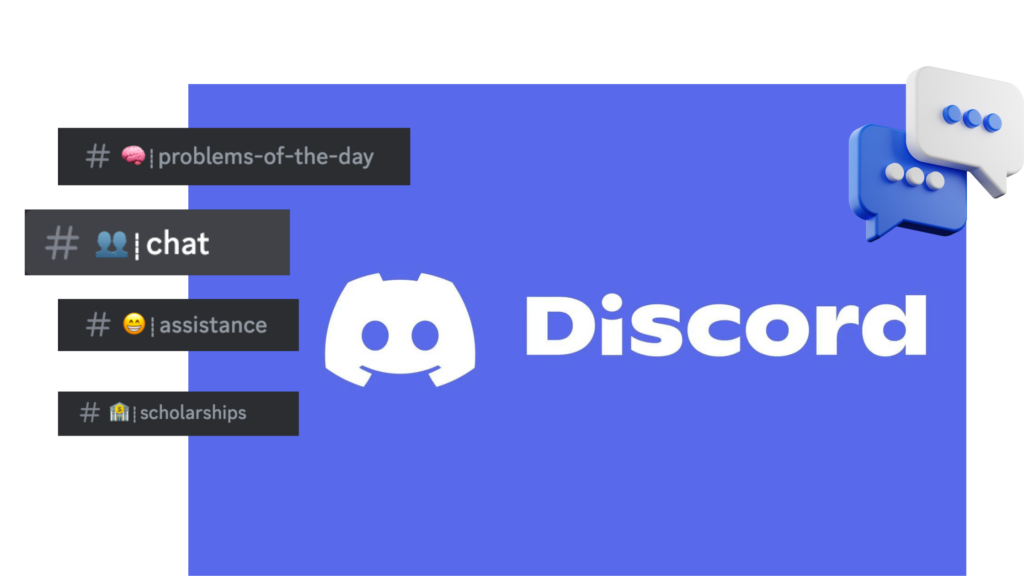
Emerging AI Technologies in Education
The advent of artificial intelligence (AI) has ushered in a new era of innovation in education, and its applications in digital SAT preparation are rapidly expanding. As technology continues to evolve, new and exciting AI-powered tools are emerging, revolutionizing the way students approach this crucial examination.
- Adaptive Learning Platforms:
AI education platforms like LearnQ.ai’s adaptive learning system tailor the curriculum and learning pace to each student’s unique strengths, weaknesses, and progress, ensuring an optimal and engaging learning journey.
- Conversational AI Tutors:
Leveraging natural language processing (NLP) and conversational AI, LearnQ.ai offers virtual tutors like Mia who can engage in intelligent dialogues, answering students’ queries and providing real-time guidance and support.
- Immersive Learning Environments:
AI-powered immersive learning environments, like those offered by LearnQ.ai, create interactive and engaging scenarios that simulate real-world SAT testing conditions, helping students better prepare for the actual examination.
- Automated Content Generation:
LearnQ.ai employs AI algorithms to generate personalized practice questions, passages, and explanations, ensuring a continuous supply of fresh and relevant content tailored to individual learning needs.
As these emerging AI technologies continue to evolve, LearnQ.ai remains at the forefront, consistently incorporating the latest advancements to enhance the digital SAT preparation experience.
LearnQ.ai is powered by VEGA AI—Is your institute next?
Offer students a Duolingo-style test-prep platform with Shopify-level customization for tutors and institutes.






Conclusion
The future of AI in education for digital SAT preparation promises transformative possibilities. AI education platforms like LearnQ.ai will enable highly personalized learning pathways, intelligent tutoring systems, gamified and immersive environments, predictive analytics for early intervention, automated content generation, and affective computing to optimize the learning experience.
By leveraging advanced algorithms, vast data analysis, and technologies like virtual/augmented reality, AI platforms like LearnQ.ai will revolutionize SAT prep – delivering tailored content, real-time feedback, engaging experiences, and continuous adaptation to individual student needs.

